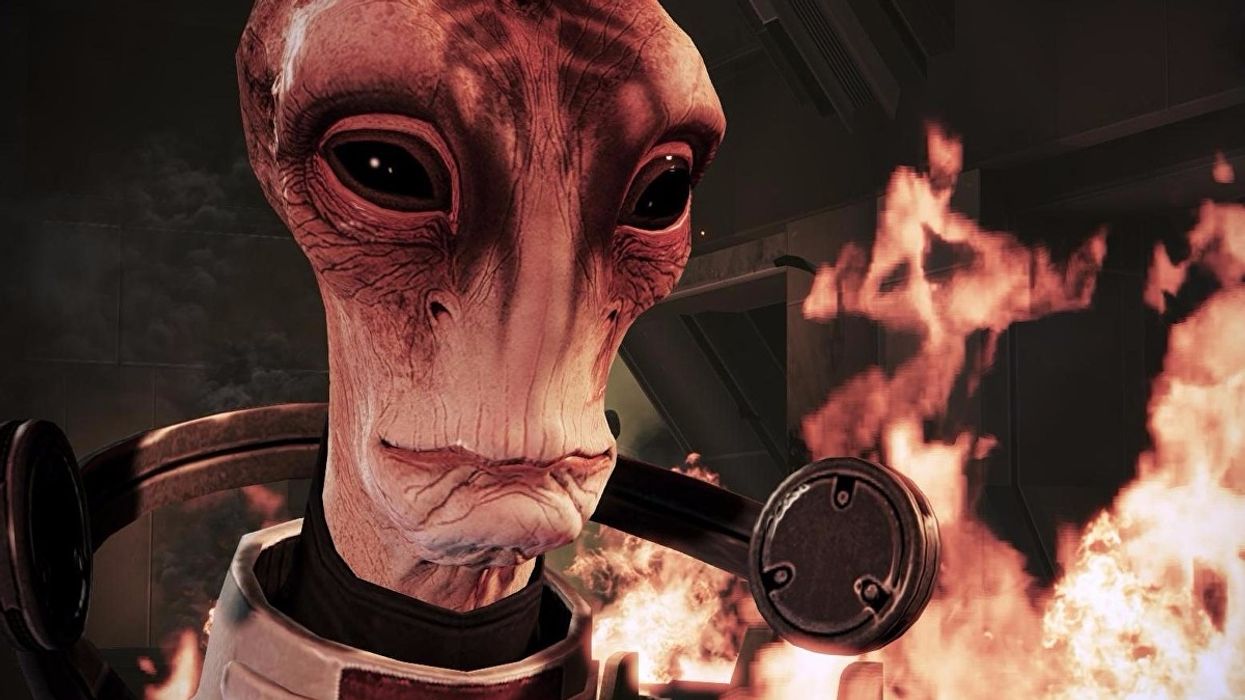There's Incredibly Dynamic Storytelling in This 'Mass Effect 3' Mission
Mass Effect is playing off science fiction tropes to force players to make incredible choices.

What's the hardest choice you ever had to make? I bet it wasn't about pushing a button and unleashing a deadly virus on the galaxy, but that's what happens in science fiction movies, TV shows, and in one of the greatest science fiction video games of all time.
If you're not a gamer, let me provide some context.
Mass Effect 3 is an action role-playing video game developed by BioWare and published by Electronic Arts. The game takes place within the Milky Way galaxy in the year 2186. A galactic civilization is invaded by a highly advanced machine race of synthetic-organic starships known as Reapers.
The third installment of the game series concludes the story of Commander Shepard, an elite human soldier who is tasked with forging alliances between species for the war.
What struck me most about this game is that when you play it, you're forced to make impossible choices all the time. As the character, you are in positions where you hold life and death in your hands, and every choice you make pushes the next choices you'll have to make as well, and it changes the narrative. This really feeds the age-old advice of "make it hell on your characters" and brings the story to life.
By putting us in these scenarios, we're forced to arc and question the world in ways more than purely beating a level or watching action would incur.
Check out this video from Story Mode, and let's talk after the jump.
There's Incredibly Dynamic Storytelling in this Mass Effect 3 Mission
The video above covers the Mass Effect 3 "Cure the Genophage" level, which takes the player from the deep dark catacombs into a laboratory where they have to decide whether or not to cure the sterility virus forced on the krogan—also known as the Genophage. This giant moral choice is one of the pillars of science fiction writing, and one that has intense repercussions within the story of the game.
So how do we get there?
The mission is set up in three-act structure, taking the player through a new world, new characters, choices, and giving us backstory on the choices made before we arrived. These choices and the repercussions make the narrative dynamic because they create stakes for us moving forward.
We learn that the Genophage virus was meant to keep the krogan population low to prevent them from starting a war they'd likely win due to their superior numbers. This kind of huge moral swing places the character (and player) in a position where they have to sort out the moral reasoning on their own. By giving us the story in acts, we get informed through gameplay and exposition of the two different possibilities that lie ahead of us.
We experience emotion when the story takes us through the transition of values between cutting the virus and letting it stay the way it is when we find it. These opposing sides of a moral dilemma lean into tropes and also make us an active part of the game. We're not an audience, but a force of change within the world.
The best part of all this? You unlock an incredible amount of stories no matter what choice the player makes. The repercussions unveil two different playing realities.
As Frankie Dauphin wrote on GameRant, "There's no right or wrong answer as to whether the Genophage should be cured. However, Wrex (or Wreav) is convinced that curing it is required to complete the treaty between the krogan and the turians, and Shepard learns early on that the Shroud was sabotaged to prevent any dispersal of the cure."
When your choice is made, you play a future. You can always go back and replay a different one. But those moral choices add up as you play the game and make it a very interesting experience.
Let us know what you think of the game and these storytelling techniques in the comments.
Source: Story Mode











